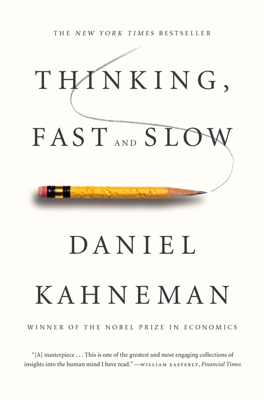The Associative Machine
The Associative Machine and Priming Effects
Automatic Responses to Associations: When presented with associated words like "Bananas Vomit," System 1 triggers a series of reactions: unpleasant images, disgust, increased heart rate, and even physical distancing from the stimulus. These reactions are automatic and unconscious, illustrating the instantaneous and uncontrollable nature of associative thinking in System 1.
Associative Coherence: This system is adept at creating a coherent narrative from stimuli, here linking the two words to form a cause-and-effect scenario that temporarily changes our perceptions (e.g., aversion to bananas). This process is rapid and involves a cascade of ideas activating one another across the brain's associative memory network.
Priming and Its Effects:
- Priming occurs when exposure to one stimulus influences the response to another stimulus, modifying accessibility of related ideas in our memory. For instance, seeing the word "EAT" can make it easier to recognize related words like "SOUP."
- Priming is not limited to words and concepts; it can influence physical actions and emotional responses without conscious awareness.
The Ideomotor Effect: Actions can be initiated by mere thoughts without the individual's conscious intention. For example, students walking slower after being primed with words related to old age, known as the "Florida effect."
Extended Influence of Priming:
- Social behaviors are influenced by primes in subtle ways. For example, mere exposure to money-related cues can make individuals more self-reliant and less socially engaged.
- Voting behaviors can be affected by the polling location, demonstrating that even civic behaviors are susceptible to environmental primes.
Empirical Demonstrations of Priming: Various studies highlight how small changes in the environment can lead to significant changes in behavior. This includes adjustments in generosity based on whether one is observed by images of eyes versus flowers.
Broader Implications: Priming research illuminates the pervasive influence of unconscious processes in our everyday decisions and actions, challenging our self-perception as entirely rational and independent decision-makers.
